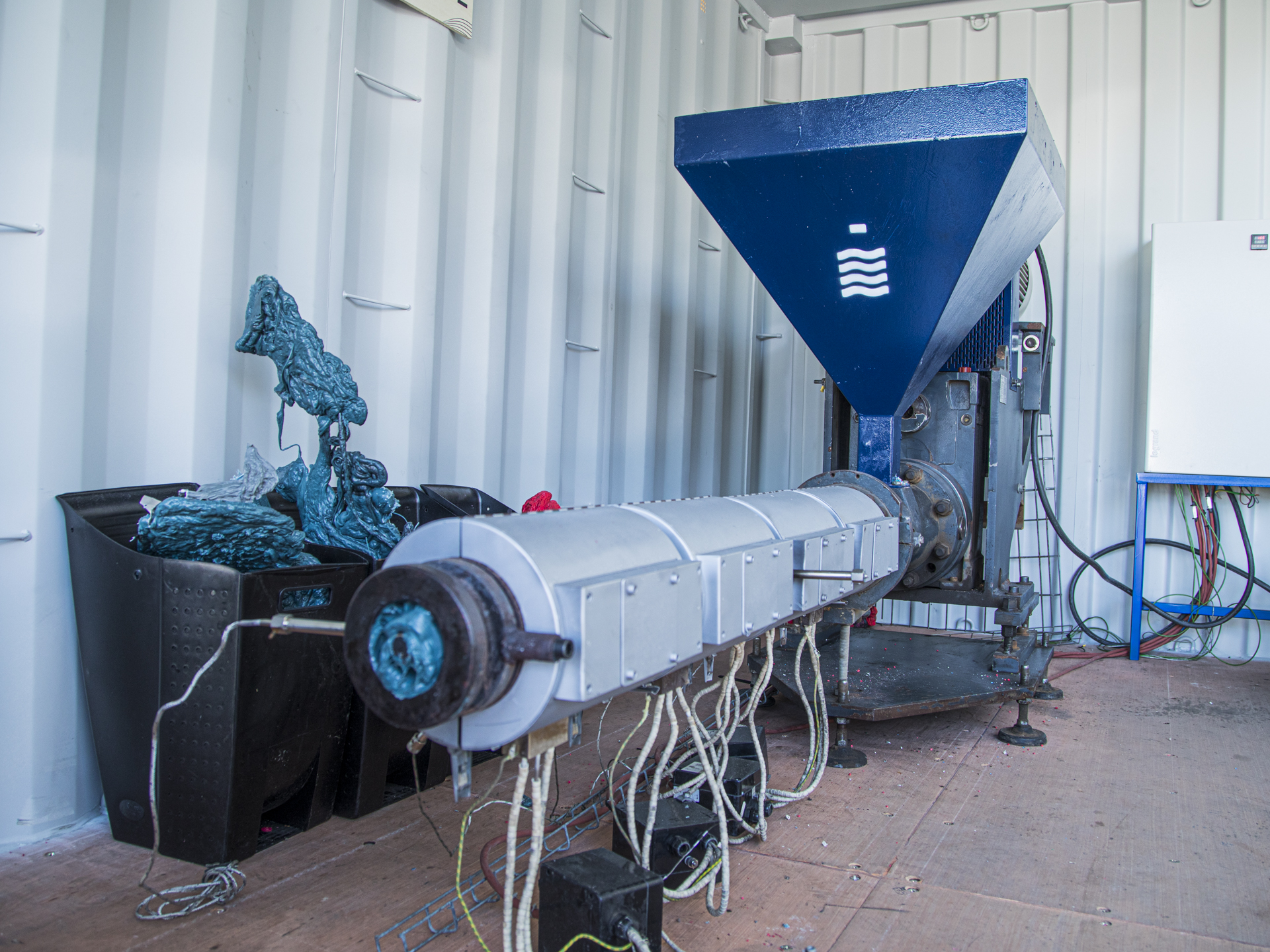Beyond green bonds – A call to develop solidarity-based finance

Source:Shutterstock
The financial industry has stepped up to embrace sustainability by embedding ESG considerations in their financing or investment toolkit. How can Taiwan forge a new path forward?
Views
Beyond green bonds – A call to develop solidarity-based finance
By Antoine Rose, Benjamin Lambergweb only
A (not so) new awakening: The financial industry is stepping up to finance energy transition in Taiwan
The financial industry has stepped up over the last decade to embrace sustainability by embedding ESG considerations in their financing or investment toolkit. A few years ago, Taiwan’s financial system joined this ESG bandwagon started in Europe, primarily motivated by pragmatic considerations – financing the energy transition promotes a sustainable future and is also a necessity for business going forward - as more clients are now including ESG as a criteria when selecting investment opportunities.
More recently, regulators are also calling the local financial ecosystem, from banks to asset owners, to channel money towards ESG goals and facilitate the financing of the energy transition!
Whilst innovation has introduced new products that took social causes into considerations, ones that often linked to specific United Nations Social Development Goals (better known as UN SDGs) and that help to source debt financing dedicated to health or education projects, we are calling for a revolution of the financing of NGO and corporate foundations – especially the ones dedicated to environmental or social causes.
A call to develop solidarity-based finance
Sustainable finance is now becoming a mainstream feature of the global capital market: Green, Social, Sustainability and Sustainability-linked Bonds or Loans are becoming liquid and mature markets fed by regular flow of issuance done by investment-grade issuers or investors. The increasing notional sizes of issuances are positively showing how capital markets are capable of channeling more and more capital to large environmental and/or social projects impacting our economies and societies.
But investors are also becoming increasingly interested in reconnecting with locally-rooted smaller, more concrete projects, making huge differences one step at a time in the lives of our engaged citizens, and helping our communities.
For now, NGOs (solidarity projects, charities, or corporate foundations …) either rely on individuals (general public or HNW) to collect funds or have a dedicated institutional budget allocated by private or public organizations.
We foresee a new path to provide worthy environmental or social causes with larger and more regular financing: The development of solidarity-based finance for capital markets products.
Explaining solidarity-based finance
Solidarity-based finance is a new and complementary approach in the Sustainable Finance toolkit. The sustainable finance market currently relies on both Use of Proceed instruments and Sustainability-linked ones:
- Project-based Finance - with a dedicated Use of Proceeds, refers to financing instruments which are earmarked to green or social projects / assets / expenditures that have a positive impact on the environment and the society. The selection and allocation process must be transparently described and impact reporting is required on the underlying green or social projects
- Behavior-based Finance – more commonly called Sustainability-Linked Finance, referring to financial features of the funding instrument such as the interest rate, the coupon level, or reimbursement of the principal amount, vary according to the achievement of sustainability performance targets. Proceeds raised may be used for the issuer / borrower’s general financing, introducing an explicit link between financial and extra-financial performance.
Solidarity-based finance refers to financing instruments that enable the parties involved (borrower and lender(s)) to contribute a monetary effort to the benefits of charities or NGOs.
The Borrower agrees on the selection of charities or NGOs active in specific environmental and/or social fields which are belonging to their own Corporate Social Responsibility (CSR) values, and the monetary contribution will be therefore providing additional funding to these good causes. This approach of Sustainable Finance is targeting ADDITIONALITY.
Applied to the capital market, the solidarity based finance concept could see a small amount of money taken from the proceeds of all green or sustainable transactions channeled towards a related cause. Unlike a blind ‘Tobin tax’ – in a targeted and voluntary way toward identified projects or causes.
A concrete case: Helping plastic odyssey fight against ocean pollution
Credit Agricole CIB Taipei Branch, in its yearly 2021 TWD funding exercise with local investors through a green bond issuance, added for the first time – on a global basis – a solidarity based feature to a bond issuance. Collectively, the Issuer, the joint-bookrunners, and the investors carved out of the transaction EUR50k which was given to a NGO – Plastic Odyssey – to help them fight against plastic pollution at sea.
 (Source: Royer)
(Source: Royer)
Why do this? Simply because it was the right thing to do, aligned with the financing purposes to develop a sustainable world. This issuance of green bonds was to finance the bank involvement in offshore wind farms in Taiwan. Investors participating in such issuance have investment goals towards financing energy transition, and ultimately the Taiwanese bookrunners were picked for their commitment to develop sustainability finance in Taiwan.
Asking all these stakeholders to contribute with hard cash to a great cause – protecting the ocean, a topic at heart of all people working in the offshore industry, was a suitable thing to do and took very little effort to get everyone onboard
Let’s make it mainstream – From Taiwan to the world!
This transaction is a drop in the ocean – pun intended! But what if we were to make solidarity-based finance mainstream? Capital market transaction is characterized by its large volume involved – how many bonds, loans, fx, swap transactions are done on a daily basis? – Zillions!
Even if a small portion of the global capital market is considering Solidarity-based finance solutions, it would rapidly represent a significant and additional amount of money to finance related good causes and projects. This would add very meaningful financing – with medium to long term impact – for an immediate and recurring monetary contribution which could help make the difference.
Charities and NGOs are key stakeholders of the community taking over Sustainable Development: awareness raising, biodiversity protection, assistance to vulnerable populations (housing, education, social inclusion, etc.) and so on. We are seeing Solidarity-based Finance as a complementary instrument of Sustainable Finance (alongside Project-based and Behavior-based approaches) addressing the financing of granular and local projects, and as an essential part of the global environment and social strategies of sovereigns or investment-grade corporates for the sustainable development of our economies and societies.
Let’s make it happen! And let’s start in Taiwan!
About the author:

Antoine Rose is Head of Sustainable Banking for Asia-Pacific and Middle East at Crédit Agricole CIB who is developing the Bank’s sustainable finance footprint and product range in the regions. He has more than 10 years’ experience in the sustainable finance field. He first joined the Corporate Social Responsibility (CSR) department at Crédit Agricole CIB in 2010 and subsequently the Sustainable Banking team in 2014. In this team, he later became Sustainable Banking Director and took the responsibility of several large clients in Benelux, Germany, Austria and Switzerland, where he actively developed Crédit Agricole CIB’s sustainable finance activities.

Benjamin Lamberg was appointed Chief Executive Officer of Crédit Agricole CIB (CACIB), Taipei Branch in December 2020, with a mandate to fast-track growth of the Bank’s local platform with a special focus on both cross-border financing and sustainability for both corporate and FI clients. Prior to this, based in Hong Kong, Benjamin was Head of Global Debt Markets with responsibility for the credit product line (2012-2020) across APAC, as well as Global Head of MTNs & Private Placements (2008-2020).
Have you read?
♦ TSMC’s bold net zero pledge: Cutting a Taipei’s worth of emissions
♦ Is Taiwan headed towards an energy crisis in 2023?
♦ Does Taiwan have enough power for TSMC?
Uploaded by Penny Chiang






